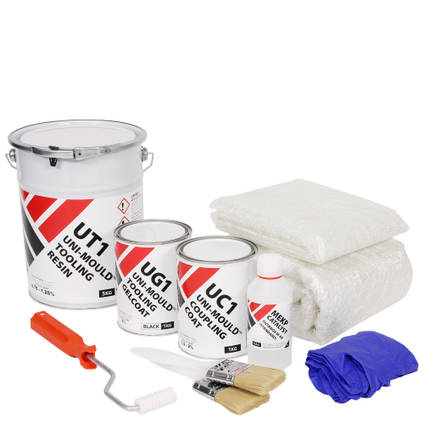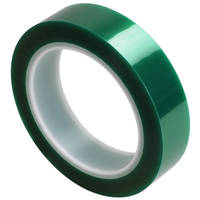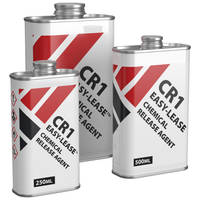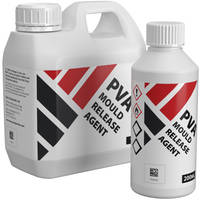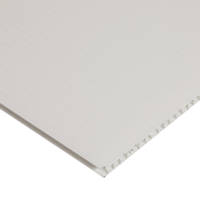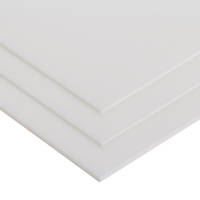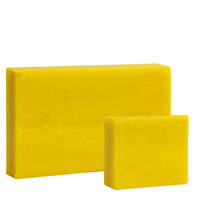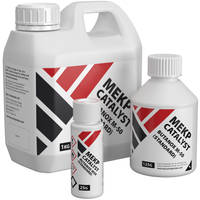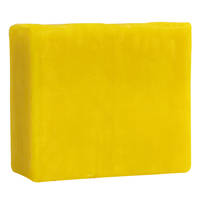Need any help or advice?+44 (0)1782 454499
Downloads (9)
This is a chemical product. Before storage or use you must download and read the accompanying safety and technical datasheets.
| MEKP Safety Datasheet (SDS) - EN | ||
| MEKP Safety Datasheet (SDS) - NL | ||
| UC1 Safety Datasheet (SDS) - EN | ||
| UT1 Safety Datasheet (SDS) - EN | ||
| UG1 Safety Datasheet (SDS) - EN | ||
| UT1 Safety Datasheet (SDS) - NL | ||
| UC1 Safety Datasheet (SDS) - NL | ||
| UG1 Safety Datasheet (SDS) - NL | ||
| Uni-Mould Introduction and Application Guide |
Specification
Mechanical Properties
| Max Service Temp | 90 | °C |
|---|
General Properties
| Gross Weight | 9.78 | kg |
|---|
Shipping Information
Restrictions
In the currently selected pack size, this product is classed as dangerous goods in limited quantity for the purposes of transport.
Shipping is possible to all UK addresses, including the Channel Islands, without restriction. However, due to being classed as 'dangerous goods', delivery times are not guaranteed on any delivery service.
Shipping to EU countries is now done through our European subsidiary based in the Netherlands. All EU customers should use www.easycomposites.eu.
To check availability of shipping to any other country, add the item to your basket and use the shipping calculator on the basket page.
For a full information regarding the shipment of dangerous goods to all destinations, see our delivery information page.
Package Size
There are no package size restrictions or surcharges for this product.
Delivery Cost
To find the availability and cost for delivery of this item to your address, add it to your basket and then use the instant shipping calculator on the basket page.
Uni-Mould Complete Mould Making Kit
- SK-UM-R-KIT
Hazardous
- 4.5/5 Average rating
The Uni-Mould system is a low shrink, high temperature, epoxy compatible rapid tooling system developed for the fast, reliable and cost-effective production of larger composite moulds suitable for epoxy-based component manufacture, such as resin infusion. These complete starter kits put together the correct tooling gelcoat, coupling coat and tooling resin, along with the right quantities of glass reinforcement, tools and ancillaries to see the job through.
A video tutorial is provided below and a detailed processing guide is available from the downloads section.
Requires MEKP catalyst (not included). Available to buy online in Regular (0.7sqm of mould) and Large (3.3sqm of mould).
PRODUCT VERSIONS
Kit Size
AVAILABILITY:Out of Stock
New stock is on its way. If you order this product, your whole order will be held and then dispatched to you as soon as this product is back in stock.
Optional items
PRODUCT OPTIONSNew stock is on its way. If you order this product, your whole order will be held and then dispatched to you as soon as this product is back in stock.
We won’t be beaten on price!
If you believe you’re buying an equivalent product cheaper elsewhere, contact us to discuss your requirements.
Requires MEKP catalyst (not included).
Easy Composites' Uni-Mould system is a universal composite mould making system ideally suited to medium to large sized composite moulds. Moulds made using Uni-Mould are fully compatible with all widely used resin systems (including epoxy, polyester and vinylester). Important Note, MEKP is not automatically included with this kit because of shipping restrictions - if ordering for mainland UK shipping and you require MEKP, please select it from the drop-down list, otherwise it will not be included.
For further information see our Uni-Mould Advantages and Laminating Guide.
In this complete kit we include a the full Uni-Mould system include Tooling Gelcoat, Coupling Coat and Tooling Resin, along with the right amount of 100g chopped strand mat for the coupling coat and 450g chopped strand mat for the main reinforcement. Also an optional addition to the kit is the correct amount of MEKP catalyst (see Transport Info tab for important information), a plastic finned laminating roller, a pack of nitrile gloves and laminating brushes.
Suitable Pattern Materials/Compatibility
The Uni-Mould system has a vinylester gelcoat which will be in direct contact with your pattern so it is very important to check that your pattern is made from, or coated with, a material that will not be attacked from the styrene solvent in the gelcoat.
Paint Finished Patterns/Original Parts
It is common to create moulds from existing panels that have been painted but in these situations, extreme caution must be paid to ensure that the gelcoat will release from, and not attack, the paint finish.
The main causes of problems with paint-finished parts are:
- Solvents still coming out of fresh paint/fillers affecting the release agent
- Styrene in the gelcoat softening vulnerable paints/finishes
Most factory paint finishes will be oven-cured industrial 2k paint and will not be leaching solvents or be attacked by styrene in the gelcoat but fresh paint, 'rattle-can' paints, filler primers and polyester bodyfillers can all be problematic.
Whilst paints make a tempting option to finish original patterns, or modified/refinished components, rattle-can ‘1k’ paints, or rattle-can 2k paints which have not been oven cured, will almost always result in a release problem or complete release failure.
If your pattern or original part has a paint finish, it is essential to conduct a small test to establish whether you will get a proper release.
A far more reliable alternative to traditional paint is to use our Pattern-Coat Hi-Gloss which is a two-part polyester resin system designed specifically for finishing patterns prior to mould making.
New Composites Patterns
For new composite patterns, the most reliable surface would our Pattern-Coat Primer or Pattern Coat Hi-Gloss. Both of these coatings will provide both a high quality surface finish and a trouble free release of the mould.
Uni-Mould is known to work with the following pattern/barrier materials:
- Pattern-Coat™ Primer
- Pattern-Coat™ Hi-Gloss
- Oven Cured 2k Paint*
- Polyester/Vinylester/Epoxy Gelcoats
- Sheet Wax
- Polypropylene, Polyethylene, Nylon, Acetal, PTFE and PVC Plastics**
- Glass
- Metals
- Melamine Board
*Conduct a test sample to ensure compatibility. **Will self-release, release agent is not necessarily required.
Further Information
Other Materials You May Need
Our Uni-Mould Starter Kit does not include any release agent so when purchasing the kit, if you don't have any release agent already you might want to consider purchasing Mould Release Wax, PVA or Chemical Release Agent depending on your requirements. For most pattern making materials, such as Pattern-Coat Primer/Gloss, epoxy resin, sealed tooling board, we would recommend CR1 Easy-Lease Chemical Release Agent. Please check the compatibility of your chosen release agent with the materials used for your pattern/original part.
When taking moulds off original parts you will generally need a sheet material to extend the part or make 'barriers' around the edge of the part; for this we would recommend either Polypropylene Sheet or Fluted Sign Board.
Taping over holes and features on an original part is best done using Flash/Release Tape and smoothing tight corners to create softer radiuses is best done using Filleting Wax.
International Shipping
Due to its highly corrosive and oxidising nature, The MEKP Included in this kit is NOT available for shipping to any destination other than mainland UK (when shipping from the UK warehouse or mainland EU when shipping from our EU warehouse). MEKP is however a standard chemical and should be available from any local fibreglass supplier.
Use with Prepregs
Although it is possible to use Uni-Mould moulds with out-of-autoclave (oven cure) prepregs (such as XPREG® XC110) we no longer recommend Uni-Mould moulds for this purpose.
Instead – for prepreg use – better results will be achieved using high temperature epoxy moulds made using our EG160 / EMP160 tooling system or XPREG® XT135 Tooling Prepreg. These high temperature epoxy tooling systems allow the prepreg to be cured at the optimum 120°C which reduces the cure time and improves the mechanical properties of the component. Additionally, epoxy tools have been found to result in a better surface finish with prepregs such as XPREG® XC110.
Kit Size and Contents
The kit is available in two sizes; regular and large. Please choose the size you want from the drop-down menu at the top of the product listing.
For a full list of what's included in each kit, along with the estimated mould area for each kit, see below:
| Regular Kit (0.7sqm) | Large Kit (3.3sqm) | |
|---|---|---|
| Estimated Mould Area | 0.7sqm | 3.3sqm |
| Uni-Mould Tooling Gelcoat | 1kg | 5kg |
| Uni-Mould Coupling Coat | 1kg | 5kg |
| Uni-Mould Tooling Resin | 5kg | 25kg |
| 100g Chopped Strand Mat | 2sqm | 7sqm |
| 450g Chopped Strand Mat | 2kg | 7kg |
| MEKP Catalyst (OPTIONAL UK MAINLAND ONLY) | 125g | 1kg |
| Plastic Finned Laminating Roller | 50mm Width | 75mm Width |
| Laminating Brush | 2x 2" | 2x 3" |
| Nitrile Gloves | 5 pairs | 10 pairs |
Requires MEKP catalyst (not included).
Easy Composites' Uni-Mould system is a universal composite mould making system ideally suited to medium to large sized composite moulds. Moulds made using Uni-Mould are fully compatible with all widely used resin systems (including epoxy, polyester and vinylester). Important Note, MEKP is not automatically included with this kit because of shipping restrictions - if ordering for mainland UK shipping and you require MEKP, please select it from the drop-down list, otherwise it will not be included.
For further information see our Uni-Mould Advantages and Laminating Guide.
In this complete kit we include a the full Uni-Mould system include Tooling Gelcoat, Coupling Coat and Tooling Resin, along with the right amount of 100g chopped strand mat for the coupling coat and 450g chopped strand mat for the main reinforcement. Also an optional addition to the kit is the correct amount of MEKP catalyst (see Transport Info tab for important information), a plastic finned laminating roller, a pack of nitrile gloves and laminating brushes.
Suitable Pattern Materials/Compatibility
The Uni-Mould system has a vinylester gelcoat which will be in direct contact with your pattern so it is very important to check that your pattern is made from, or coated with, a material that will not be attacked from the styrene solvent in the gelcoat.
Paint Finished Patterns/Original Parts
It is common to create moulds from existing panels that have been painted but in these situations, extreme caution must be paid to ensure that the gelcoat will release from, and not attack, the paint finish.
The main causes of problems with paint-finished parts are:
- Solvents still coming out of fresh paint/fillers affecting the release agent
- Styrene in the gelcoat softening vulnerable paints/finishes
Most factory paint finishes will be oven-cured industrial 2k paint and will not be leaching solvents or be attacked by styrene in the gelcoat but fresh paint, 'rattle-can' paints, filler primers and polyester bodyfillers can all be problematic.
Whilst paints make a tempting option to finish original patterns, or modified/refinished components, rattle-can ‘1k’ paints, or rattle-can 2k paints which have not been oven cured, will almost always result in a release problem or complete release failure.
If your pattern or original part has a paint finish, it is essential to conduct a small test to establish whether you will get a proper release.
A far more reliable alternative to traditional paint is to use our Pattern-Coat Hi-Gloss which is a two-part polyester resin system designed specifically for finishing patterns prior to mould making.
New Composites Patterns
For new composite patterns, the most reliable surface would our Pattern-Coat Primer or Pattern Coat Hi-Gloss. Both of these coatings will provide both a high quality surface finish and a trouble free release of the mould.
Uni-Mould is known to work with the following pattern/barrier materials:
- Pattern-Coat™ Primer
- Pattern-Coat™ Hi-Gloss
- Oven Cured 2k Paint*
- Polyester/Vinylester/Epoxy Gelcoats
- Sheet Wax
- Polypropylene, Polyethylene, Nylon, Acetal, PTFE and PVC Plastics**
- Glass
- Metals
- Melamine Board
*Conduct a test sample to ensure compatibility. **Will self-release, release agent is not necessarily required.
Further Information
Other Materials You May Need
Our Uni-Mould Starter Kit does not include any release agent so when purchasing the kit, if you don't have any release agent already you might want to consider purchasing Mould Release Wax, PVA or Chemical Release Agent depending on your requirements. For most pattern making materials, such as Pattern-Coat Primer/Gloss, epoxy resin, sealed tooling board, we would recommend CR1 Easy-Lease Chemical Release Agent. Please check the compatibility of your chosen release agent with the materials used for your pattern/original part.
When taking moulds off original parts you will generally need a sheet material to extend the part or make 'barriers' around the edge of the part; for this we would recommend either Polypropylene Sheet or Fluted Sign Board.
Taping over holes and features on an original part is best done using Flash/Release Tape and smoothing tight corners to create softer radiuses is best done using Filleting Wax.
International Shipping
Due to its highly corrosive and oxidising nature, The MEKP Included in this kit is NOT available for shipping to any destination other than mainland UK (when shipping from the UK warehouse or mainland EU when shipping from our EU warehouse). MEKP is however a standard chemical and should be available from any local fibreglass supplier.
Use with Prepregs
Although it is possible to use Uni-Mould moulds with out-of-autoclave (oven cure) prepregs (such as XPREG® XC110) we no longer recommend Uni-Mould moulds for this purpose.
Instead – for prepreg use – better results will be achieved using high temperature epoxy moulds made using our EG160 / EMP160 tooling system or XPREG® XT135 Tooling Prepreg. These high temperature epoxy tooling systems allow the prepreg to be cured at the optimum 120°C which reduces the cure time and improves the mechanical properties of the component. Additionally, epoxy tools have been found to result in a better surface finish with prepregs such as XPREG® XC110.
Kit Size and Contents
The kit is available in two sizes; regular and large. Please choose the size you want from the drop-down menu at the top of the product listing.
For a full list of what's included in each kit, along with the estimated mould area for each kit, see below:
| Regular Kit (0.7sqm) | Large Kit (3.3sqm) | |
|---|---|---|
| Estimated Mould Area | 0.7sqm | 3.3sqm |
| Uni-Mould Tooling Gelcoat | 1kg | 5kg |
| Uni-Mould Coupling Coat | 1kg | 5kg |
| Uni-Mould Tooling Resin | 5kg | 25kg |
| 100g Chopped Strand Mat | 2sqm | 7sqm |
| 450g Chopped Strand Mat | 2kg | 7kg |
| MEKP Catalyst (OPTIONAL UK MAINLAND ONLY) | 125g | 1kg |
| Plastic Finned Laminating Roller | 50mm Width | 75mm Width |
| Laminating Brush | 2x 2" | 2x 3" |
| Nitrile Gloves | 5 pairs | 10 pairs |
Downloads (9)
This is a chemical product. Before storage or use you must download and read the accompanying safety and technical datasheets.
| MEKP Safety Datasheet (SDS) - EN | ||
| MEKP Safety Datasheet (SDS) - NL | ||
| UC1 Safety Datasheet (SDS) - EN | ||
| UT1 Safety Datasheet (SDS) - EN | ||
| UG1 Safety Datasheet (SDS) - EN | ||
| UT1 Safety Datasheet (SDS) - NL | ||
| UC1 Safety Datasheet (SDS) - NL | ||
| UG1 Safety Datasheet (SDS) - NL | ||
| Uni-Mould Introduction and Application Guide |
Specification
Mechanical Properties
| Max Service Temp | 90 | °C |
|---|
General Properties
| Gross Weight | 9.78 | kg |
|---|
It's always worth testing a small amount on a discrete area first to check that the gelcoat wont attack the vinyl. If you still have the vinyl left over, you could even apply your chosen release agent and do a test with some of the gel to make sure that it releases okay. Apart from that it should be fine, applying vinyl over a part is a well used technique when the finish of the part may not be compatible with the chosen tooling gel and the original needs to be protected.
There is really very little you need to consider in terms of storing Uni-Mould moulds in the long term. We've had moulds that we've used for many years, sometimes using them every day, other times using them every few months. The only likely condition that could do them any harm would be if they were stored in very damp conditions or out exposed to the weather and elements. Because you'll have an exposed glass fibre edge, over time, water could 'ingress' into the glass fibre and the moulds would deteriorate; this would take a long time however and would need require constant exposure to wet weather.
It's also worth pointing out that if you're using a semi-permanent release agent, like Easy Lease, you would need to give your moulds a fresh coat of release agent when you use them again if they've been in storage for anything more than a few weeks.
Yes, you will need MEKP Catalyst to cure any of our Uni-Mould resins, including the Tooling Gelcoat. You can order the MEKP from the product page and can also find the MEKP separately here: MEKP Catalyst
Really, any more than 4 layers at a time would be risking the mould overheating. If you wanted to go thicker, then you will need to wait for the first 4 layers to cure, then key the surface and apply another 4 layers (you need the 4 layer thickness to give you the heat to cure the resin)
The reason we can’t ship MEKP outside of the UK is because it is highly oxidizing, and standard carrier services do not permit it to be transported.
However you can purchase MEKP from any suppliers of composite materials including fibreglass (GRP) shops, roofing suppliers, boat buildings, car bodyshops etc. There is nothing special about the MEKP we supply, you can ask at your local supplier for ‘Standard reactivity MEKP’; brands such as Andanox KP9, Akperox A30, Butanox M50 (Akzo Nobel) are all suitable and widely available.
The XTC-3D product appears to be an epoxy based coating so we would expect that, with the appropriate release agents, a mould made using our Uni-Mould™ System would release from the resin no problem. However, this is not a product combination we have tested ourselves so we would recommend that you conduct a small test to rule out any potential unexpected effects.
We do not recommend using the Uni-Mould with our range of XPREG out of autoclave pre-pregs. It lacks the temperature resistance for the full cure and can cause surface finish issues.
The Uni-Mould system will be fine over epoxy.
Acrylic plastic is not suitable for use with the Uni-Mould system as the styrene within the Tooling Gel Coat will eat into and damage the surface of the acrylic.
Your intended use is one of the most typical uses for the Uni-Mould starter kit and so the suggested layup and the exact process described in the technical guide for the Uni-Mould system would be exactly right for you. As would the process shown in the bonnet making video tutorial.
Typical layup for Uni-Mould is Tooling Gelcoat -> Tooling Gelcoat -->100g CSM with Coupling Coat --> 4 layers of 450g CSM and Tooling Resin.
Uni-Mould moulds are based on a very high quality vinylester tooling gelcoat which will out-last more conventional polyester gelcoats. The special gelcoat is also highly polishable which means that hard-working moulds can be re-polished to restore them to original condition (something which is almost impossible with epoxy tools for example). The lifespan is dependent upon a number of factors, particularly how well they’re treated, but in our workshop we have found a well looked-after mould will give hundreds of releases. We have 7 year old moulds still in regular use!
The Uni-Mould Coupling Coat can be backed up with tooling resin and CSM as soon as it is tacky and up to 48 hours later. The time for the resin to become tacky varies depending on catalyst ratio and ambient temperature but typically we would expect around 2hrs after application if using 2% catalyst in a typical 20°C ambient temperature.
Generally as long as the pattern has been constructed to be reasonably durable, I would not expect any distortion of the pattern itself during the Uni-Mould Mould making process.
The main area of concern is the use of paints over the pattern. Many paints, including rattle-can spray paints, are laden with solvents which can take months to fully come out of the surface. The problem this causes is during the cure of the gelcoat and subsequent resin layers during mould making, out-gassing of the paint can release solvents which will degrade the performance of the release agent and can cause the pattern to stick in the new mould. If you cannot avoid the use of paints, then we would recommend the use of PVA Mould Release Agent as it provides a physical barrier between the two surfaces and thus significantly reduces the likelihood of the pattern sticking to the mould. PVA does leave some surface marring on the mould which will need polishing out for a perfectly glossy finish.
A better sheet to use as baseboard is polypropylene sheet as naturally resin does not stick to it and thus a release agent is not needed.
If you need to use polycarbonate then we would recommend you apply release agent on to it and do a small test first to ensure the sheet does not stick.
ASK YOUR OWN QUESTION
Customer Product Reviews for Uni-Mould Complete Mould Making Kit
Great kit that does exactly what the video shows, wouldn't mind paying a little extra for the release agent and the wipes to be included though as i stupidly forgot to get them at first.
SUBMIT YOUR OWN PRODUCT REVIEW
We publish all reviews for verified purchases. Submit your own review and help other customers with their choices.SUBMIT YOUR OWN PRODUCT REVIEW
We publish all reviews for verified purchases. Submit your own review and help other customers with their choices.Shipping Information
Restrictions
In the currently selected pack size, this product is classed as dangerous goods in limited quantity for the purposes of transport.
Shipping is possible to all UK addresses, including the Channel Islands, without restriction. However, due to being classed as 'dangerous goods', delivery times are not guaranteed on any delivery service.
Shipping to EU countries is now done through our European subsidiary based in the Netherlands. All EU customers should use www.easycomposites.eu.
To check availability of shipping to any other country, add the item to your basket and use the shipping calculator on the basket page.
For a full information regarding the shipment of dangerous goods to all destinations, see our delivery information page.
Package Size
There are no package size restrictions or surcharges for this product.
Delivery Cost
To find the availability and cost for delivery of this item to your address, add it to your basket and then use the instant shipping calculator on the basket page.
RELATED PRODUCTS
CUSTOMERS ALSO PURCHASED
RELATED PRODUCTS
CUSTOMERS ALSO PURCHASED
100% SECURE
PAYMENT METHODS


Easy Composites Ltd, registered in England 7486797. All content copyright (C) Easy Composites Ltd, 2025. All rights reserved.
